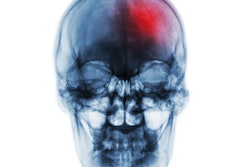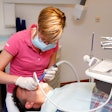As we close out 2024 and review DrBicuspid's most popular articles, when it comes to dental hygiene, there were 10 articles in particular that captured readers' attention. These articles encompassed new hygiene-related discoveries and research further documenting the complex, interconnected association between oral health and systemic health. Without further delay, here are the highlights from this year.
Trouble keeping an erection? The culprit may be in your mouth
Poor occlusal support conditions may be independently and significantly correlated with erectile dysfunction in men, but the mechanisms behind the link remain unclear, according to a new study published back in May in the International Journal of Urology.
Heart attack, stroke linked to no-calorie sweetener in toothpaste
A zero-calorie sugar substitute commonly found in toothpaste and chewing gum may be associated with a heightened risk of cardiovascular events like heart attacks and strokes, reported the Cleveland Clinic back in June.
High levels of circulating xylitol were linked to an elevated three-year risk of cardiovascular events. Additionally, a third of patients with the largest amount of xylitol in their plasma were more likely to have a cardiovascular event, according to the release.
Bone density may be linked to caries
Monitoring bone mineral density (BMD) alongside proper oral healthcare may address the potential bidirectional link between BMD and caries, according to a study published in Scientific Reports in December. Furthermore, BMD in the head may show a stronger impact on the decayed, missing, and filled permanent teeth or surfaces index for caries than other BMD sites, reported the study's author.
Metformin: What dentists need to know
Metformin, a prescription medication that controls blood sugar, was the second most commonly prescribed drug in the U.S. in 2021. Barbara Madej, Rph, Teresa Mendoza, PharmD, and Dr. Lisa Chan explain the side effects of metformin and special considerations that clinicians must be aware of when treating patients taking this drug to reduce the risk of complications.
Frequent cannabis use linked to caries, tooth loss
Regular recreational cannabis use may be linked to untreated coronal and root surface caries, as well as severe tooth loss, in U.S. adults, reported a study published in December in the Journal of the American Dental Association. Because dental professionals are likely to treat frequent cannabis users, it's worthwhile they receive training on the oral health effects of cannabis, the authors wrote.
Plant-based diets may affect the risk of developing OSA
Adhering to a healthy plant-based diet may be linked to a lower risk of obstructive sleep apnea (OSA) by reducing inflammation and lowering the likelihood of obesity, according to a study published in ERJ Open Research that DrBicuspid reported in March. But eating an unhealthy plant-based diet that's high in salt and sugar may significantly heighten the risk of developing OSA, the authors wrote.
Got canker sores? It may be what you're eating
A woman's overall intake of dietary antioxidants, including vitamin C, may play a role in causing recurring aphthous stomatitis, better known as canker sores, according to a study published in September in the International Dental Journal. Additionally, women without recurring canker sores had a greater intake of zinc and a lower intake of vitamin C, the authors wrote.
Does fluoride cause a decrease in IQ? A dentist says what he believes really matters
Back in September, Dr. Chris Kammer wrote an opinion piece on many communities removing fluoride from their drinking water supplies. "The reality is that most cities will continue to add it and monitor it to keep it at generally recognized as safe levels that are somewhat effective at reducing cavities. As we learn more about the risks, you can expect that some communities will continue to remove it altogether," Kammer wrote. Read what Dr. Kammer had to say about his take on the future of water fluoridation.
Case report: Sugar-free lozenges may cause dental problems
A 58-year-old healthy man with stellar oral hygiene and dietary habits developed carious lesions on almost every posterior tooth adjacent to where he habitually held a sugar-free nicotine lozenge, according to a case report published last August in Case Reports in Dentistry.
It suggests that the frequent use of these lozenges that contain low sugar alcohols like mannitol, as well as sugar-free cough drops and hard candies, that the public assumes are dentally harmless may be associated with dental caries, the authors cautioned.
At risk? At least 1 in 5 U.S. dental programs reuse healing caps
In July, DrBicuspid reported on a study published in the Journal of Dental Education that claimed about 20% of accredited periodontics residency programs in the U.S. were reusing dental implant healing abutments, posing a risk of biological cross-contamination among patients. Furthermore, there appears to be a lack of standardization in the decontamination protocols among programs in which healing caps are being reused, potentially creating an infection control problem, the authors wrote.



















